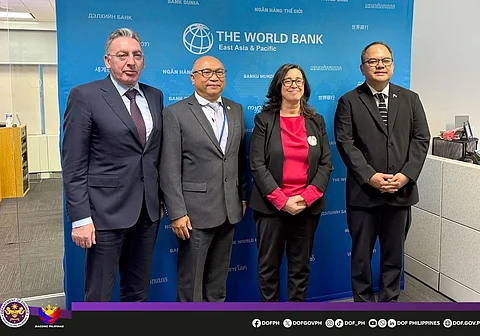
- NEWS
- the EDIT
- COMMENTARY
- BUSINESS
- LIFE
- SHOW
- ACTION
- GLOBAL GOALS
- SNAPS
- DYARYO TIRADA
- MORE

Singapore has expressed interest in helping build energy and digital infrastructure in the Philippines, the Department of Finance (DoF) said in a recent statement.
The government agency shared that DoF Undersecretary for International Finance Group Joven Balbosa and Singapore Ministry of Finance Deputy Secretary Kevin Shum discussed the ASEAN Power Grid on the sidelines of the Asian Development Bank’s 58th Annual Meeting in Milan, Italy held 4 to 7 May.
“Mr. Shum extended his full support to the Philippines, particularly on advancing regional initiatives such as the ASEAN Power Grid which seeks to bolster energy security and mobilize financing for cross-border electricity connectivity,” DoF said.
Shum said power connectivity, especially through renewable energy, in Southeast Asia is critical in supporting its projected economic growth into the world’s fourth largest economy by 2030.
Finance Secretary Ralph Recto said the Philippines, in particular, is seen to rise from the 20th largest consumer market in the world to the 13th spot within this decade.
He said businesses will be supported by the country’s growing labor force, with a 15 percent growth in Filipinos of working age between this year and 2035.
“The discussions further emphasized the critical role of the ASEAN Infrastructure Fund in facilitating infrastructure development within the region, with an emphasis on the need for regular pricing reviews to ensure sustainable and competitive project financing,” DoF said.
These statements came amid the pilot implementation of the power integration project between Laos, Thailand, Malaysia, and Singapore.
The project runs from 2016 to 2025 and is being monitored by the Heads of ASEAN Power Utilities/Authorities (HAPUA).
HAPUA said the Southeast Asian governments and private sectors have started 16 bilateral power interconnection projects.
In 2004, the Philippines and eight other ASEAN members signed a memorandum of understanding to efficiently link sustainable power sources through stronger public-private partnerships, standardized equipment, and joint research and development.
“Officials also highlighted the importance of enhancing customs integration through digitalization, streamlining trade facilitation, and promoting trade and investment to drive regional economic growth,” the DoF said.
According to the International Monetary Fund, digitalization of tax processes can increase revenue collection by at least 3 percent.
The Bureau of Internal Revenue has achieved a 97 percent digitalization rate after launching electronic tools enabling faster taxpayer registration and monitoring.
In a statement on Friday, the Department of Finance said the BIR reported 16 completed and piloted digitalization projects out of 27 set projects.
